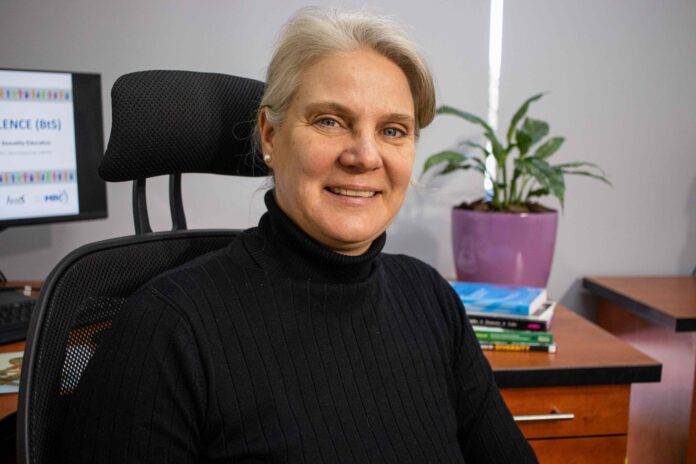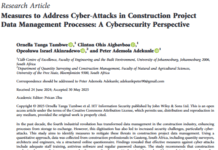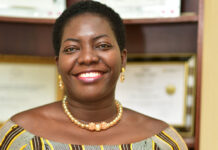Illustrative Image: October 2025: Professor Jill Hanass-Hancock – African Female Researcher of the Month
Image Source & Credit: DSTI
Ownership and Usage Policy
The Department of Science, Technology and Innovation (DSTI) proudly honours Professor Jill Hanass-Hancock as the Distinguished Woman Researcher in the Human and Social Sciences at the South African Women in Science Awards (SAWiSA) 2025. This prestigious recognition celebrates her outstanding contributions to advancing disability-inclusive health systems, HIV prevention, and gender equity through innovative and transformative research.
Prof. Hanass-Hancock is a Chief Specialist Scientist at the South African Medical Research Council (SAMRC) and an Honorary Professor at the University of KwaZulu-Natal (UKZN) School of Health Sciences. For over two decades, her research has bridged the fields of public health, disability studies, and social justice, addressing the vulnerabilities faced by people with disabilities—particularly women—in relation to HIV, gender-based violence (GBV), and health inequities.
A Visionary Leader in Disability-Inclusive Research
Prof. Hanass-Hancock’s work has been instrumental in transforming how health systems understand and respond to disability. She has led groundbreaking initiatives to integrate disability-disaggregated data into health and development frameworks across sub-Saharan Africa, influencing policies and interventions that promote inclusivity.
Her research has produced several practical tools and models now used globally. Among these is the Disability Awareness Checklist, designed to help healthcare providers assess and improve accessibility in their services. This tool has been successfully adapted and implemented in countries such as Uganda and the United Arab Emirates (UAE), demonstrating its global relevance.
She has also developed pioneering frameworks to measure the extra costs associated with disability and designed inclusive comprehensive sexuality education (CSE) programmes, such as Breaking the Silence, which are aligned with United Nations (UN) standards and adaptable across diverse cultural contexts. These innovations ensure that individuals with disabilities are not left behind in global health and education initiatives.
Global Impact and Policy Influence
Prof. Hanass-Hancock’s research has significantly influenced international efforts to promote disability inclusion in health, education, and social protection systems. Her evidence-based advocacy has informed the work of major global organizations, including UNICEF and the Missing Billion Initiative, which aim to ensure that persons with disabilities are included in global development agendas.
In South Africa, her leadership has been pivotal in ensuring that people with disabilities are fully represented in the National Strategic Plan on HIV, Tuberculosis (TB), and Sexually Transmitted Infections (STIs) 2023–2028. She also played a key role in developing a disability-inclusive Global Fund application for 2024, marking a milestone for inclusive health policy in the region.
Scholarship, Mentorship, and Capacity Building
A prolific scholar, Prof. Hanass-Hancock has authored more than 90 peer-reviewed publications in leading journals, including The Lancet, Disability and Health Journal, and the Journal of the International AIDS Society. Her academic influence extends beyond publication—she has served as a mentor and supervisor to numerous emerging researchers, many of whom are persons with disabilities.
Her mentorship record includes two postdoctoral fellows, six PhD graduates, and ten master’s students, alongside several DSTI–Human Sciences Research Council (HSRC) interns and Disability Data Initiative fellows. This dedication to capacity building demonstrates her commitment to nurturing the next generation of inclusive researchers and advocates.
Innovative Knowledge Translation and Public Engagement
Beyond academia, Prof. Hanass-Hancock is celebrated for her innovative approaches to knowledge translation—turning research findings into actionable change. Her methods include film productions, training workshops, disability sporting events, and public awareness campaigns.
She is a regular contributor to national steering committees and public engagement platforms, such as the Disability Networking Zones at international HIV/AIDS conferences. Through these platforms, she amplifies the voices of people with disabilities and advocates for their inclusion in public health policy and practice.
Recognition and Scholarly Excellence
Prof. Hanass-Hancock holds a B2 rating from the National Research Foundation (NRF), a mark of her high standing in the academic community. She is a sought-after keynote speaker at international conferences, where she continues to influence global dialogues on disability-inclusive development, health equity, and social transformation.
Her recognition at the South African Women in Science Awards 2025 underscores her enduring impact as a researcher, mentor, and advocate. By centering disability inclusion within the broader context of health and human rights, she has redefined how equity and access are understood in research and policy.
A Legacy of Inclusion and Empowerment
Prof. Jill Hanass-Hancock’s work embodies the spirit of SAWiSA—celebrating women who lead with excellence, transform their fields, and uplift others through innovation and empathy. Her tireless efforts to bridge the gap between research and real-world impact continue to shape inclusive policies and empower marginalized communities.
Her journey is not only one of academic distinction but also of humanitarian purpose—proving that science, when inclusive, becomes a powerful instrument for dignity, equality, and change.
















 The African Research (AR) Index is a comprehensive scholarly directory and database focused explicitly on journal publishers that publish and disseminate African research.
The African Research (AR) Index is a comprehensive scholarly directory and database focused explicitly on journal publishers that publish and disseminate African research.

